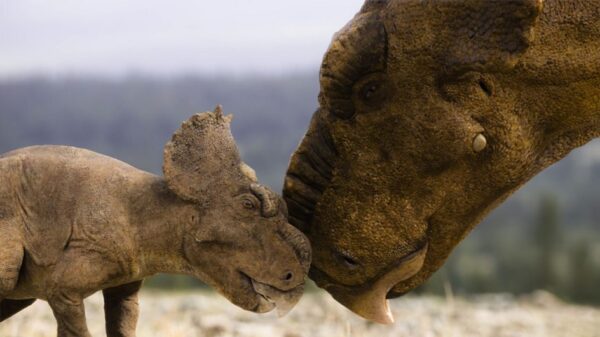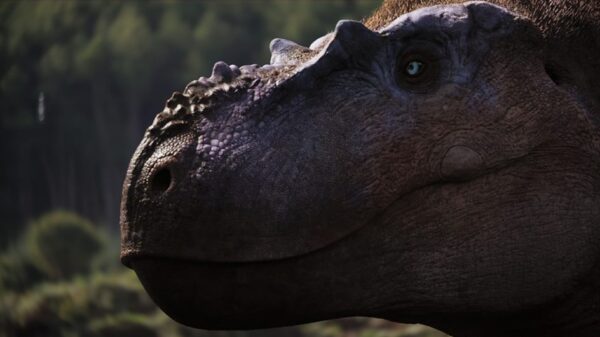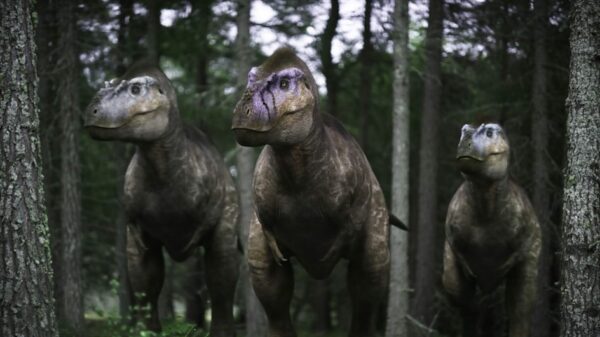It’s been over 25 years since we first went Walking With Dinosaurs.
The original show used a mix of CGI and animantronics, mixed with live-action footage, to bring the dinosaurs to life. Now, they’re returning for another six-part series and BBC Factual has released three first look pictures.
Each episode will focus on an individual dinosaur whose remains are currently being unearthed by world-leading dinosaur hunters. Thanks to cutting-edge science, experts can work out how these prehistoric creatures lived, hunted, fought and died more accurately than ever before.
Ahead of the show, the team has revealed details of two of the species who will be brought to life.
Pachyrhinosaurus
Closely related to Triceratops, Pachyrhinosaurus is a plant-eater with a thick slab of keratin covered bone over its nose, known as a boss, used for combat between males.

There are three known species of Pachyrhinosaurus. Our species is Pachyrhinosaurus lakustai, which possesses a unique singular horn projecting from the centre of its head – informally known as the ‘unicorn’ horn. 73 million years ago, mega herds as big as 40,000 Pachyrhinosaurs could have embarked on epic migrations over hundreds of miles in search of food and nesting grounds, much like caribou do today.
Albertosaurus
Albertosaurus is a smaller, but just as deadly, relative of T. rex. Young Albertosaurus were capable of reaching speeds of up to 30 miles an hour, the fastest animal in Walking With Dinosaurs. Palaeontologists believe they hunted their prey in packs before devouring them with their dozens of large, sharp teeth.

Many dinosaurs are now known to have feathers. Our Albertosaurus has fur-like feathers, something we can infer thanks to fossil evidence of related species preserving these details perfectly.
Walking With Dinosaurs is a BBC Studios production for the BBC and PBS, co-produced with ZDF and France Télévisions.
There’s no start date for the show yet, but its due later this year – we’ll keep you posted.
You can find the original 1999 series of Walking With Dinosaurs on BBC iPlayer.

